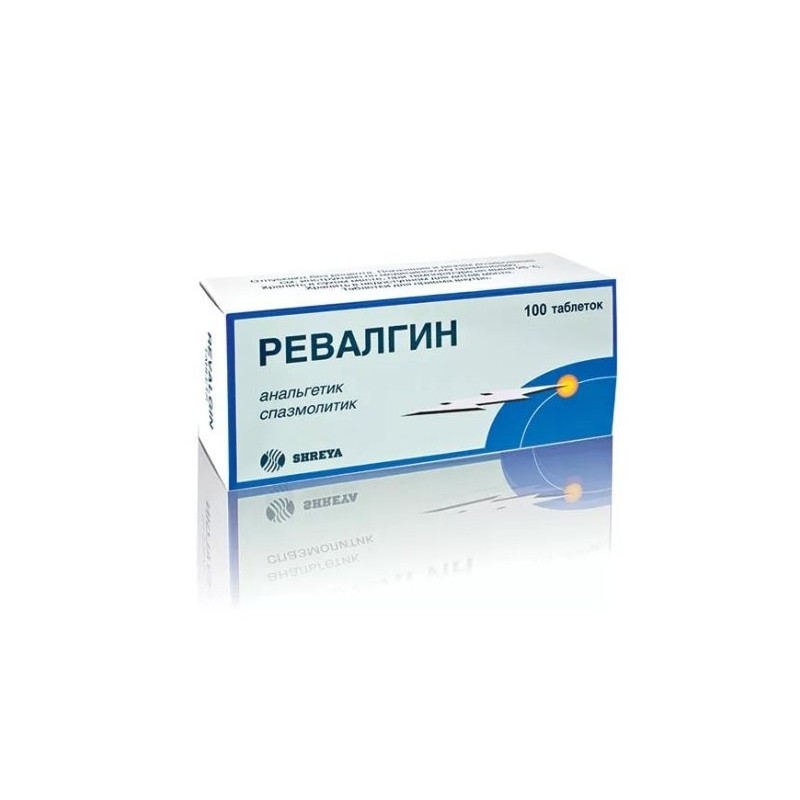



 All payments are encrypted via SSL
All payments are encrypted via SSL
 Full Refund if you haven't received your order
Full Refund if you haven't received your order
1 pill contains: metamizol 500 mg, fenpiverinium bromide 0.1 mg, pitofenone hydrochloride 5 mg
Spasmoangetic. The combined drug, which consists of a non-narcotic analgesic - metamizole sodium (analgin), myotropic antispasmodic - pitofenone hydrochloride and m-holinoblokiruyuschy means - fenpiveria bromide.
Metamizol has analgesic, antipyretic and weak anti-inflammatory effects.
Pitofenon, like papaverine, has a direct myotropic effect on the smooth muscles of the internal organs and causes its relaxation.
Due to its m-anticholinergic blocking effect, fenpiverine bromide has an additional antispasmodic effect on smooth muscles.
For short-term treatment: arthralgia, myalgia, neuralgia, sciatica.
As an auxiliary drug: pain after surgery and diagnostic procedures.
Pills:
Ampoules:
With caution and under the supervision of a physician, the drug should be used by patients with impaired liver or kidney function, with a tendency to hypotension, bronchial asthma, increased individual sensitivity to NSAIDs or non-narcotic analgesics (including a "aspirin triad" in history).
For children and adolescents under 18 years old, the drug should be used only as prescribed by a doctor.
At therapeutic doses, the drug is usually well tolerated.
Sometimes allergic reactions (skin rash, itching, very rarely - anaphylactic shock, urticaria), angioedema are possible.
In rare cases - a burning sensation in the epigastric region, dry mouth, headache.
Dizziness, lowering blood pressure, tachycardia, cyanosis are possible.
With prolonged use, hematopoietic disorders: thrombocytopenia, leukopenia, agranulocytosis (may include the following symptoms: unmotivated rise in temperature, chills, sore throat, difficulty swallowing, stomatitis, and the development of symptoms of vaginitis or proctitis).
With a tendency to bronchospasm may provoke an attack.
In very rare cases, malignant exudative erythema (Stevens-Johnson syndrome), toxic epidermal necrolysis (Lyell's syndrome).
Rarely (usually with long-term use or the appointment of high doses) - renal dysfunction, oliguria, anuria, proteinuria, interstitial nephritis, staining of the eyes in red.
Very rarely: decreased sweating, accommodation paresis, difficulty urinating.
Local reactions: with intramuscular injection, infiltrates are possible at the injection site.
All side effects should be reported to your doctor.
The simultaneous use of Revalgin with other non-narcotic analgesics can lead to mutual enhancement of toxic effects.
Tricyclic antidepressants, oral contraceptives, Allopurinol violate the metabolism of metamizol in the liver and increase its toxicity. Barbiturates, phenylbutazone and other inducers of microsomal liver enzymes weaken the effect of metamizol.
Simultaneous use with cyclosporine reduces the level of the latter in the blood.
Sedatives and tranquilizers enhance the analgesic effect of Revalgin.
If necessary, the simultaneous use of these and other drugs should consult with your doctor.
Adults and adolescents over 15 years old take 1-2 pills 2-3 times / day.
The maximum daily dose is 6 tablets. Reception duration - no more than 5 days.
The multiplicity of reception - 2-3 times / day.
Tablets should be taken orally, preferably after meals.
Symptoms: vomiting, low blood pressure, drowsiness, confusion, nausea, epigastric pain, abnormal liver and kidney function, convulsions.
Treatment: gastric lavage, the appointment of Activated carbon, symptomatic therapy.
The drug is contraindicated during pregnancy (I trimester and the last 6 weeks) and during lactation (breastfeeding).
For children and adolescents under 18 years old, the drug should be used only as prescribed by a doctor. In early childhood (up to 3 months or with a body weight less than 5 kg) is contraindicated.
Do not use for relief of acute abdominal pain (until the cause is clarified).
During the period of treatment with Revalgin, ethanol is not recommended.
Parenteral administration is usually used in case of emergency (renal or hepatic colic) and in cases where ingestion is not possible (or absorption from the gastrointestinal tract is impaired). Special care is required with the introduction of 2 ml of solution and more (the risk of a sharp decrease in blood pressure). In / in the injection should be carried out slowly, in the supine position and under the control of blood pressure, heart rate and respiratory rate.
With a long (more than a week) use of the drug, it is necessary to control the picture of peripheral blood and the functional state of the liver.
Influence on ability to drive motor transport and control mechanisms
During the period of drug treatment is not recommended to drive vehicles and engage in other potentially hazardous activities that require the speed of physical and mental reactions.
Pills
Store in a dry place at a temperature not exceeding 25 ° C, in places inaccessible to children.
